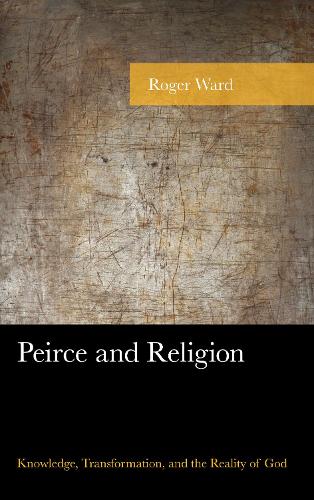
Peirce and Religion: Knowledge, Transformation, and the Reality of God
(Hardback)
Available Formats
Publishing Details
Peirce and Religion: Knowledge, Transformation, and the Reality of God
By (Author) Roger Ward
Bloomsbury Publishing PLC
Lexington Books
15th October 2018
United States
Classifications
Professional and Scholarly
Non Fiction
Philosophy
191
Physical Properties
Hardback
184
Width 159mm, Height 230mm, Spine 20mm
435g
Description
Charles Sanders Peirce is one of the most original voices in American philosophy. His scientific career and his goal of proving scientific logic provide rich material for philosophical development. Peirce was also a life-long Christian and member of the Episcopal Church. Roger Ward traces the impact of Peirces religion and Christianity on the development of Peirces philosophy. Peirces religious framework is a key to his development of pragmatism and normative science in terms of knowledge and moral transformation. Peirces argument for the reality of God is a culmination of both his religious devotion and his life-long philosophical development.
Reviews
Roger Ward's research on the roots of Peirce's Christianity produces great fruit for his readers -- namely a counter-narrative to those Peirce scholars in Indianapolis and in Toronto who continually conceal the significance of Peirce's Christian convictions and ways-of-thinking. This book offers a helpful and interesting contribution to American Philosophy, especially concerning the religious nature of pragmatism. In my judgment, this book ought to be taught or utilized in courses on American Philosophy. -- Jacob L. Goodson, Southwestern College
Working mainly with well-known materials, Roger Ward has given us an astonishingly new vision of Peirce as a religious philosopher, a philosopher who is religious. The long-term meaning of pragmaticism is living life in obedience to the thirdness of thirdness as characteristic of reality, then of the communitys long duration, and only very fragmentarily of a person with an individual will. Ward makes his argument in terms of the development of Peirces logic through the years. But he relates this to Peirces explicit relations to religion, his abandonment of his fathers Unitarianism for Episcopalianism, his falling away from that with the end of his first marriage, and finally the recovery of his Trinitarian faith and life in the church until his death. This is a very deep vision of Peirce. -- Robert Cummings Neville, Boston University
Peirce challenges our methods of inquiry while science challenges a religious world view. Roger Ward rises to these challenges, providing in Peirce and Religion a coherent, provocative overview of Peirces lifelong effort to reconcile his belief in science with his enduring religious faith. A fresh, persuasive analysis of the Trinitarian framework for Peirces triadic semiotic, logic, and methods of purposeful inquiry and practice in the context of both community and congregation. -- Robert King, Utah State University
In the U.S. the relationship between science and religion remains an perennially important question. In this book, Ward explores some historical aspects of this relationship in the life and work of Charles Peirce, one of North Americas most original thinkers. The story he tells is both insightful and provocative. Anyone seeking insight into the development of pragmatic thought in the U.S. should have to wrestle with Wards reading of Peirce. -- Douglas Anderson, University of North Texas
Author Bio
Roger Ward is professor of philosophy at Georgetown College.
